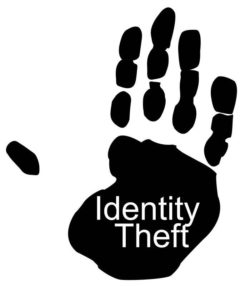Back to School – Student Identity Theft
 Identity theft is rampant. It it the fastest growing Internet crime and black college students should be aware of the vulnerability of their personal information.
Identity theft is rampant. It it the fastest growing Internet crime and black college students should be aware of the vulnerability of their personal information.
According to the Better Business Bureau college students are prime targets because their credit records are usually clean. College students are also more willing to share information in person and online. Visit any college campus, especially during the first week, and you will find numerous credit card companies offering their services to new and returning students. There are also other companies and marketers working to gather student information for their sales efforts. Students would be wise to avoid these information collectors. Be extremely careful what forms or surveys you fill out and what information you release to someone you really don’t know.
Combine that with the powerful urge to be social and you will find students sharing far too much information on social media sites like Facebook and Instagram and other campus forums.
Teach your student that not everyone on campus, student or not, is a friend. Half of all identity theft cases reported are executed by someone the victim knows. This is why it so important that all students, African-American especially, jealously guard their personal information.
The college dorm room is a vulnerability for careless students. BBB CEO Kelvin Collins said, “Protect your information. Don’t leave bank statements, credit card statements or your wallet just laying out for other people to find.”
Campus mailboxes are another vulnerability. Students should send sensitive mail to their permanent addresses. Students should also check their financial statements often to look for suspicious activity or purchases.
Make sure you or your student are aware of the campus privacy policies. Ask questions about who the campus shares information with. You might be surprised. Some universities sell student SAT and ACT scores, their financial information such a student loan data and even what books they check out and classes they take.
There are steps that a student can take to protect their identity.
- Be aware of dumpster diving – Students receive a lot of offers through the mail. Don’t just throw these things away. Identity thieves are checking campus trash cans and will often find student’s personal information. They may find enough to apply for a credit card in the students name. This is really very common. Make sure you use a shredder on all your unwanted mail. A good paper shredder can be as cheap as $10.00. Make use of email delivered credit card bills or bank statements.
- Check you mailbox frequently – Breaking into student mailboxes is not uncommon. Be alert, has your mail suddenly stopped? An identity thief may have filled out a change of address form against your address. Check with postal officials if something does not seem right.
- Monitor your identity…closely –Make use of credit monitoring services. Check all your accounts at least once a month . This includes bank accounts, credit cards, and utility bills. Look for suspicious charges you didn’t authorize, no matter how small. Identity thieves will often test a charge account with a small purchase to see if they can use your identity. If they succeed they go on a spending spree. Are you getting notifications in the mail or your e-mail about accounts you know nothing about? Don’t just delete the notice, investigate. Calls from creditors or collection agencies may indicate you have already been victimized. Report this immediately to the police, your bank, your legitimate credit accounts and all the credit reporting agencies. Get a yearly copy of your credit report. You can visit www.annualcreditreport.com, or call toll-free 877-322-8228 to receive your report.
- Know whats in your wallet or purse – Most people, actually 95 percent, carry a wallet or purse with them at all times. But very few can tell you exactly what’s in it. The contents of your wallet or purse probably include your driver’s license, or social security card, extremely valuable forms of identification. These documents are the target of identity thieves. Guard your wallet or purse at all times. Don’t relax around you dorm roommates. Make a list of all identity documents and credit cards you carry with you. Write down your driver’s license number and other important numbers. And be prepared to take action if your wallet or purse is stolen. In the event your wallet or purse is stolen notify every agency responsible for the items on your list immediately. Don’t wait to see if it re-appears or if someone turns in to lost and found. Being proactive will save you the headache of trying to remember what you have in your wallet and the agony of having your identity stolen. And never, ever, keep your social security number on you. A favorite move of an experienced identity thief is to steal your purse or wallet, copy the information and then turn it in to lost and found or return it to you. This has the affect of causing you to relax and not alert the proper officials. Keep that in mind. Memorize your social security number and lock it away in a safe location.
- Phishing attacks/Social engineering– A professional scammer is an expert at convincing you that they are someone else. On the phone its sometimes called social engineering. Using email its called a phishing attacks. They do this to manipulate you into revealing information. This activity is frequently associated with online scams, often using email messages that look official or seem to be from someone you know. But not always. Students need to be especially alert to this. Be on the lookout for these types of scams, especially in your e-mail. You may get an email that looks like its from a school official. For example, it may look like its from the school financial aid office. Do not click on any link or attachment in the e-mail. Don’t reply if you have any suspicion at all. Make sure you know the school policy for contacting students via email or what they can discussed on the phone. Identity thieves that use phishing attacks and social engineering are very skilled at making any e-mail look very legitimate or sound official on the phone. Don’t just assume because it has the school logo on it it is safe. Emails can be easily duplicated and email addresses can be spoofed. Be cautious, this is your personal information we are talking about.
Identity theft is the fastest growing crime online because it is profitable. Students can be careless and relaxed around their friends and classmates. But, again, most identity theft is done by people you know. Be aware and be alert to how identity thieves works and save yourself some headaches this school year.
Now you know.






